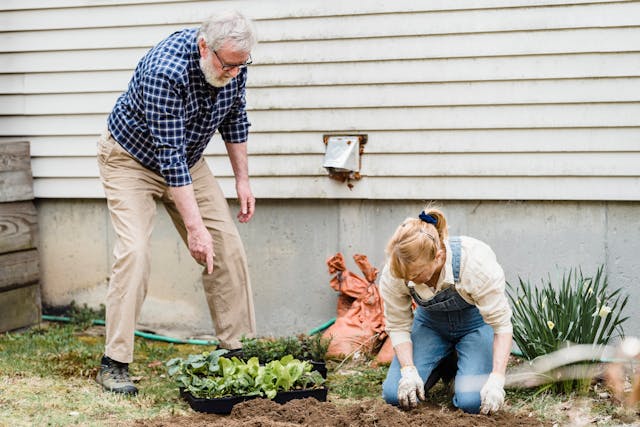- Spending quality time with a loved one helps alleviate fears and strengthens your bond.
- Creating a peaceful environment with familiar and comforting items enhances the quality of your time together.
- Engaging in shared activities, whether favorite hobbies or new experiences, creates joyful and memorable moments.
- Capturing memories through photographs, audio, and video recordings preserves the essence of your loved one.
- Seeking support from a hospice nurse and joining support groups offer invaluable guidance and emotional solace.
Facing the impending loss of a loved one is one of the most challenging experiences we can encounter. When someone we care about is nearing the end of their life due to illness, the emotional toll can be overwhelming. However, amidst the sadness and pain, there lies an opportunity to create lasting and meaningful memories that can provide comfort and solace long after they are gone. These precious moments can serve as a source of strength and joy, reminding us of the love and connection we share. This article explores various ways to make good memories before a sick loved one’s passing, offering practical suggestions and heartfelt insights to help navigate this difficult time.
The Importance of Quality Time
Making Every Moment Count
When time is limited, the value of each moment increases exponentially. Quality time spent with a loved one can help alleviate their fears and anxieties while strengthening the bond you share. Engaging in meaningful conversations, sharing stories, and expressing your love and appreciation are simple yet profound ways to make the most of the time you have together. Even in silence, your presence alone can provide immense comfort.

Creating a Peaceful Environment
A calm and serene environment can greatly enhance the quality of the time spent with a loved one who is nearing the end of their life. Surround them with familiar and comforting items, such as photographs, favorite blankets, or cherished mementos. Soft music, gentle lighting, and the soothing scent of essential oils can also contribute to a peaceful atmosphere. Ensuring that their surroundings are as pleasant and comforting as possible can help them feel more at ease, allowing for more meaningful interactions.
Engaging in Shared Activities
Revisiting Favorite Hobbies
Engaging in activities your loved one enjoys can create joyful and memorable moments. Whether it’s painting, gardening, playing a musical instrument, or watching their favorite movies, participating in these hobbies together can provide a sense of normalcy and happiness. Adapting these activities to their current physical abilities ensures they remain enjoyable and stress-free.

Exploring New Experiences
Introducing new experiences, even simple ones, can bring a sense of adventure and novelty. This could be trying out a new recipe together, exploring a new book, or learning something new, like a craft or game. The excitement of discovery can be uplifting and temporarily distract from illness. These shared experiences can also become cherished memories that you look back on fondly.
Capturing Memories
Photographing Special Moments
Photographs can capture emotions and preserve moments that words cannot fully express. Taking photos during special moments with your loved one can create a visual legacy of your time together. These images can be a source of comfort and a way to remember the love and connection you shared. Consider creating a photo album or a digital slideshow to keep these memories alive.
Recording Stories and Conversations
Audio and video recordings are another wonderful way to capture the essence of your loved one. Recording their voice as they share stories, wisdom, or simply chat can be incredibly comforting in the future. Videos of everyday moments, laughter, and even their expressions can serve as a lasting tribute. These recordings can be treasured keepsakes that allow you to relive those special times whenever you need to feel close to them.
Expressing Love and Gratitude
Writing Letters and Notes
Written words have a timeless quality that can convey deep emotions and sentiments. Writing letters or notes to your loved one, expressing your love, gratitude, and appreciation, can be a meaningful gesture. These notes can be read aloud to them, providing comfort and reassurance. Additionally, they can leave behind a written legacy that you can revisit whenever you miss them.
Creating a Gratitude Journal
A gratitude journal can be a powerful tool for you and your loved one. Encouraging them to reflect on and write about what they are grateful for can bring positivity and perspective. You can also contribute to the journal, sharing your own feelings of gratitude and recounting happy memories together. This practice not only strengthens your bond but also helps you focus on the positive aspects of life.
Seeking Support and Guidance
Involving a Hospice Nurse
A hospice nurse can provide invaluable support and guidance during this challenging time. They are trained to offer not only medical care but also emotional and psychological support for both the patient and their family. Their expertise can help manage symptoms, ensure comfort, and provide insights into how to create meaningful experiences. Having a nurse involved allows you to focus more on spending quality time with your loved one rather than worrying about their medical needs.
Joining Support Groups
Connecting with others who are going through similar experiences can provide comfort and understanding. Support groups offer a safe space to share your feelings, seek advice, and find solace in the company of others who understand your situation. These groups can offer practical tips on creating memories, coping strategies, and emotional support, helping you feel less alone during this difficult journey.
The impending loss of a loved one is an incredibly difficult reality to face. However, by focusing on creating meaningful memories, you can transform this challenging time into one of connection, love, and shared joy. From spending quality time and engaging in shared activities to capturing memories and expressing your feelings, these efforts will not only bring comfort to your loved one but also provide you with cherished memories to hold onto. Seeking support from professionals and joining support groups can further help navigate this emotional journey. In the end, the love and memories you create will become a lasting tribute to your loved one, providing solace and strength long after their passing.

